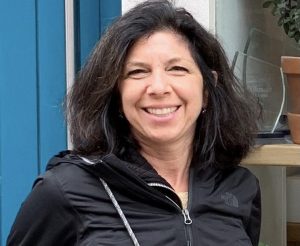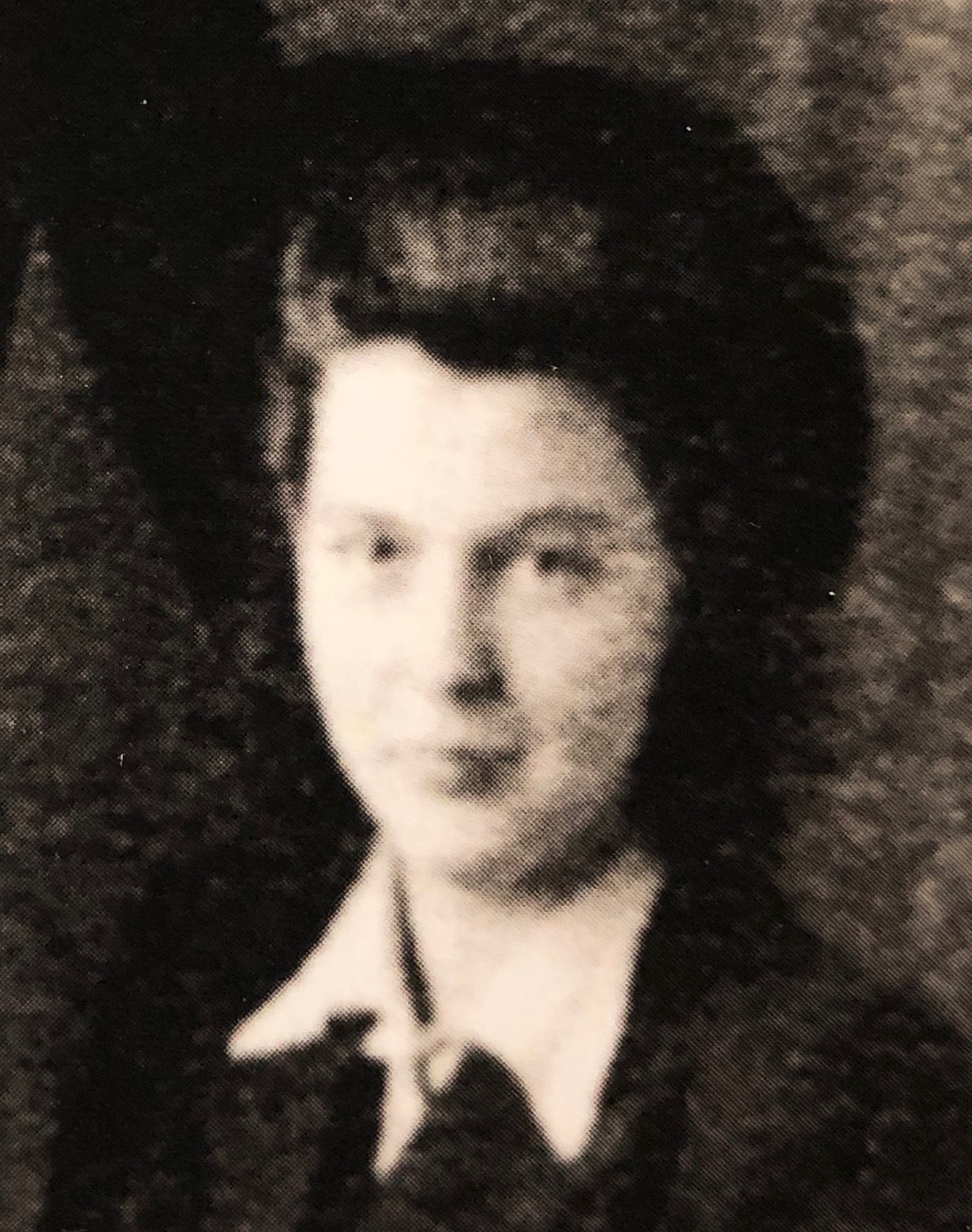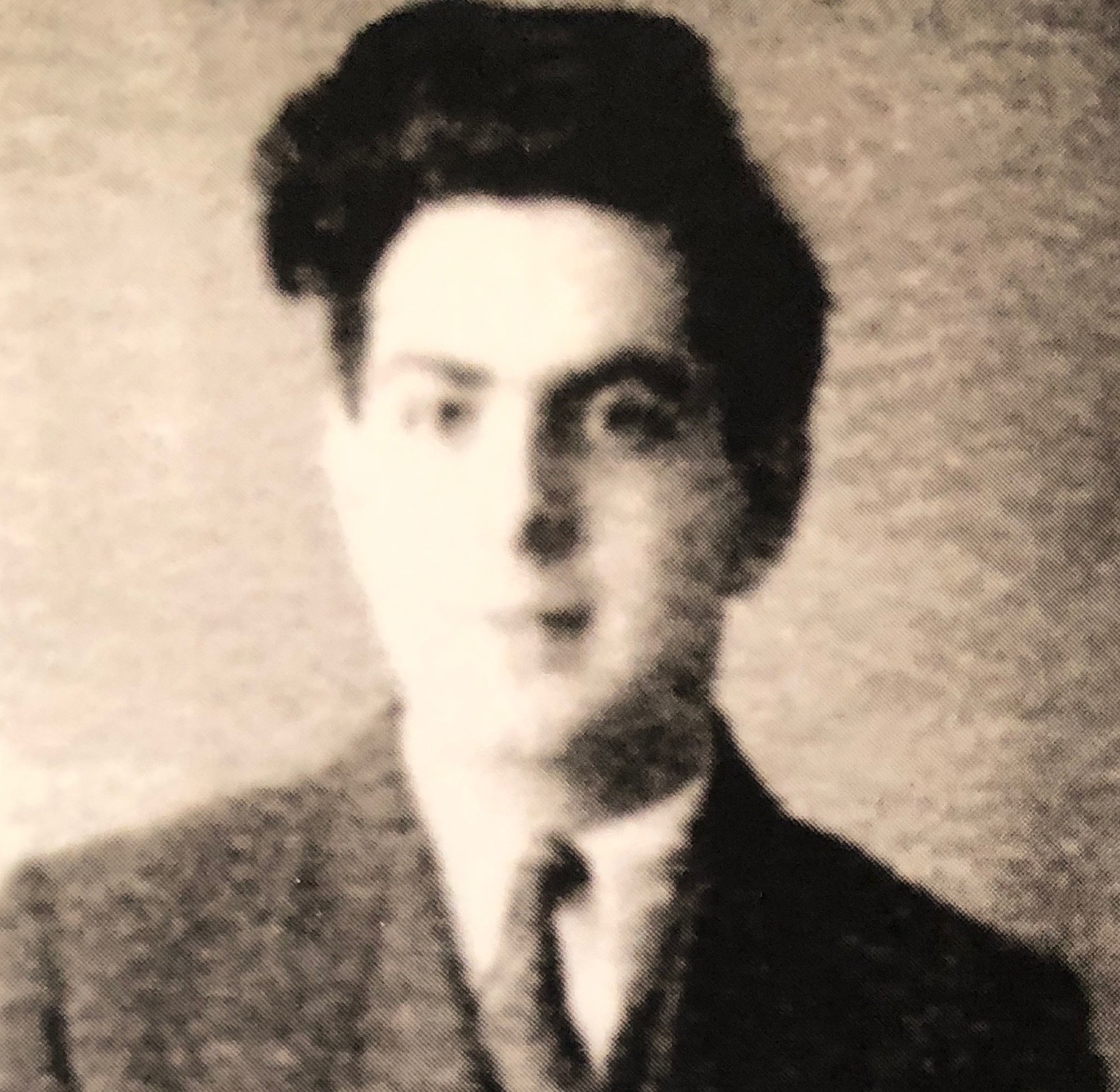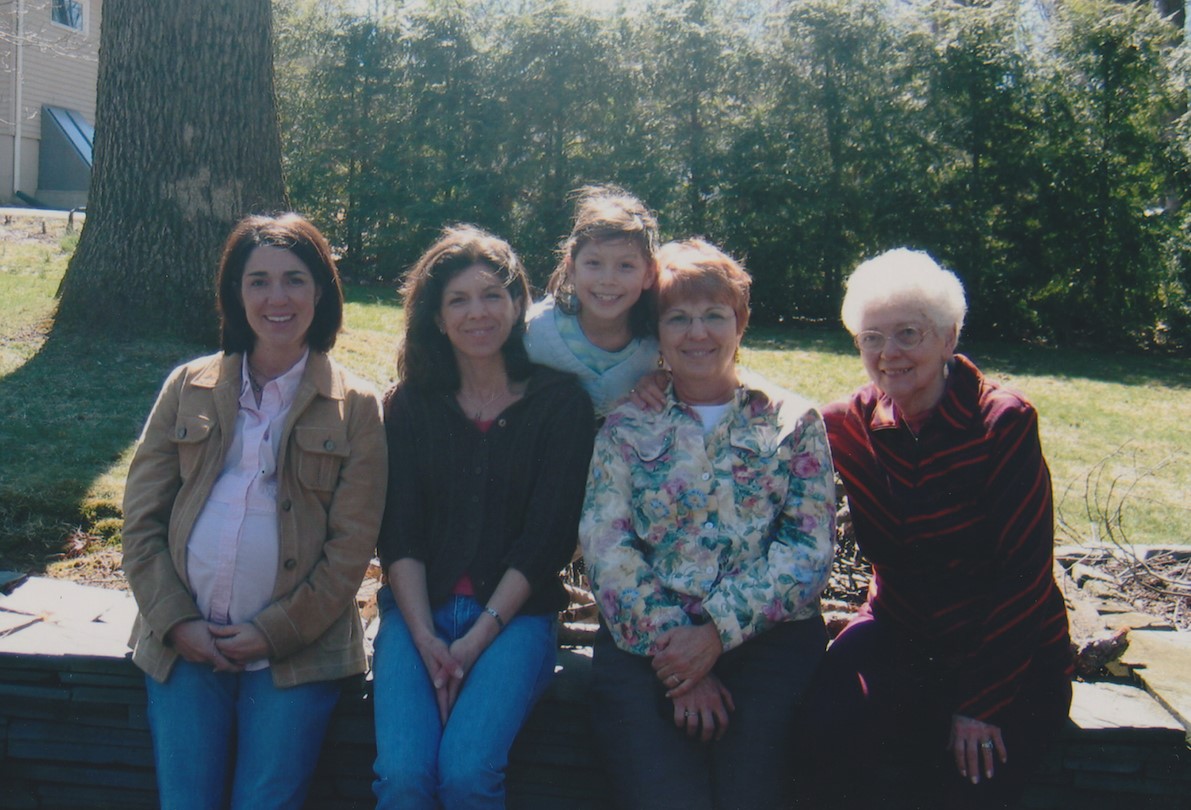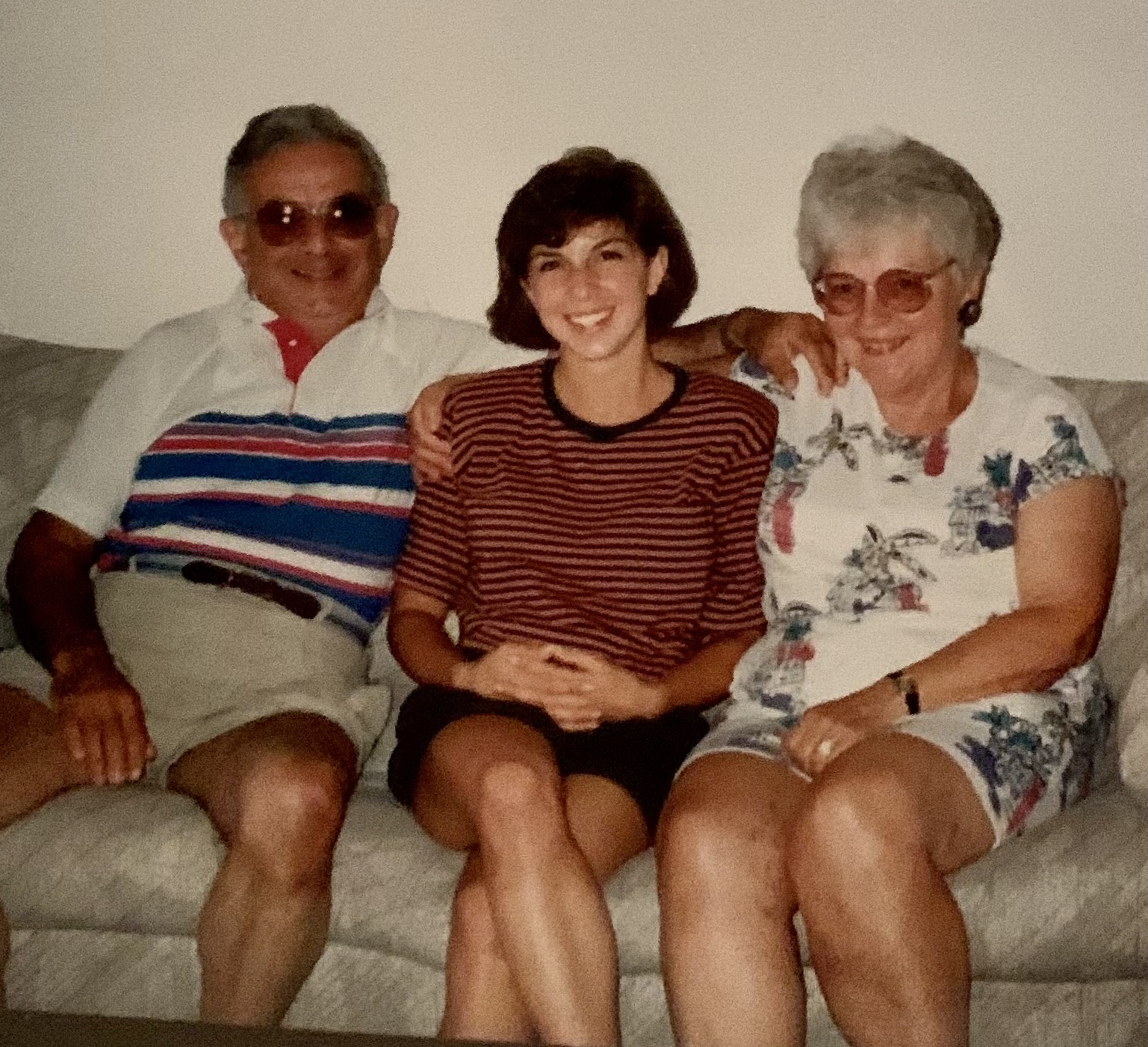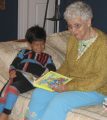At My Kitchen Table By Aimee Lam, April 7, 2006
I am nearly thirty-seven years old. My mother’s side of the family is Jewish and for my entire life, I have known that my grandparents suffered horrors during World War II because of their faith. I have known that both lost family members to the concentration camps but that they were lucky enough to escape to England where they met and married. They were very young, around 16 years old. I know that my mom was born in England, and that soon after the threesome immigrated to America looking for the streets paved in gold. They never found those streets but managed with hard work and dedication to make a living, buy a house, and to raise their three girls to be caring people, devoted to their families, and active citizens. For nearly 37 years, I have known that very bad things happened to my distant family, but I have never known what. I have known that the stories were painful and that they were never told as my mother and her sisters grew up.
Last night, Grandma spent the night at my house. This is not something we do often, so my children (Allie nearly 8, and Jason, 5 years old) were unbelievably excited. This morning at breakfast we were talking about the kids and how fast they are growing (Grandma helps care for my cousin Hannah who is 8 years old). The conversation was around the girls and how they have a hard time sometimes choosing what to wear. Grandma finds this funny because growing up she had one dress to wear to school, something to wear at home, and something to wear to sleep. That was it. She vividly remembers a neighbor offering to sew her a new dress and she had to stand for what seemed like forever to have the dress hemmed. She complained and complained and now she thinks that was funny that she would complain when she should have been happy to get something new! This was in Germany, 1938. Soon after the dress was finished, there was loud banging in the middle of the night on her family’s door. German soldiers were ordering the family up and out of the house. They were being rounded-up to be sent away. Grandma reached for her new dress and put it on.
And so, there we were in my kitchen in Bridgewater, New Jersey and for the first time in my life my grandma spoke to me about her experience with the Holocaust. I did not let the moment pass, but instead asked many of the questions that I guess have been there for years.
From time to time, I give Grandma a call just to touch base. I like to tell her funny stories about Jason because she seems to really enjoy them. She always suggests writing these stories down because you think you’ll remember them, but then you don’t. And then we always say, “but who has the time.” Grandma is 82. She is in great health, fit, smart, and active. But time slips away, and this story is one I don’t want to lose. I am writing this one down, Grandma, because I just heard it and I don’t want to forget it. I want my children to know it one day and hope they don’t forget it either.
This is what I heard today as accurately as I can remember:
At the time of that horrifying middle-of-the-night banging on the door, Grandma was 15. She had an older sister, Helen, and two younger sisters: Rosel and Eva. Her father was a traveling salesman. Helen, I believe, was out-of-town working for a family as a domestic. Her mother worked hard to take care of four girls. Her father was Polish and therefore the family was considered Polish. At the time, the family’s passport was being renewed at the Polish embassy and was out of their hands. This turned out to be lucky. The Germans examined each family’s passport and sent them on trains. Two families were left – Grandma’s being one of them. If nothing else, the Germans are known for their precision and adherence to order. No passports threw a wrench in their process. Thus, Grandma’s family was thankfully sent back home.
After that night, none of Grandma’s friends would associate with her anymore because she was Jewish. So, she joined a young person’s Zionist organization. The next year, 1939, she left with that organization to England where she found safety and met Grandpa who was one year older. After a year or so there, the organization was running out of money and so the young people were expected to work. She had a choice: go to London to work or to a farm in the country. She chose London, and Grandpa, already smitten with Grandma, chose London also. Little did they know they were going right into the Blitz. I didn’t hear any more about that, but I imagine it was indescribably frightening, especially for teenagers torn from their families. They tried twice to get married, but they were only about seventeen with no parents to give permission. The judge denied them twice, but the third time finally allowed it. My mother was born several years later. Grandma’s mom survived the war and came to visit for six months. She wanted Grandma and Grandpa to return to Germany, but they just could not do it. They convinced her to move to England, but sadly she died following an operation close to her 50th birthday. She had lived through two wars and untold stress.
And for the rest of Grandma’s family? I do not know the sequence of events, but this is what happened. Helen was able to leave Germany doing domestic work first in England (I think) and then in America. Eva was very beautiful and attracted unwanted attention from an older male neighbor. When she refused his advances, he reported her to the Nazis as someone doing something illegal with the black market. The Nazis ordered her to be sent away. Grandma’s father volunteered to go with her. They thought Eva was going to some kind of work camp. They did not know of the concentration camps where they were ultimately sent. They were both killed there. Grandma remarked that her father was not much of a family man. He was not home much due to his job, and he spent a lot of his free time gambling. His attempt to protect Eva, however, enabled Grandma to forgive him. Rosel at some point was rounded-up again, perhaps with a group of young people targeted to be sent to concentration camps. A kind German soldier risked his life by pulling her aside and telling her to hide until he said it was safe. She did as he said and went back to her home when he gave the okay. At this point, the danger of the situation was clear and Grandma’s mom and Rosel went into hiding until the war was over. After the war, Rosel was dancing (ballet) in a performance. She met a fellow actor, a former German soldier, they fell in love and married. Making a living in post-war Germany was impossible, so they moved to Brazil where Rosel’s husband had family.
All of this information was shared via telegraphs at the Red Cross. I did not know that was a function the Red Cross played and I realize how important that function was. Families were torn apart in a pre-internet, pre-telephone, pre-airmail society.
And for Grandpa’s family? They were Jewish, living in Germany also at the start of World War II. Grandpa had an older sister, Bella, and a younger brother who had some sort of handicap (perhaps Downs Syndrome?). He was in a home where he was learning to take care of himself. He and his housemates were sent early-on to the concentration camps where he died. Grandpa’s father, Bernard, owned a furniture shop. He was a woodworker and that is how Grandpa first developed an interest in carpentry. He used to watch his father tinker with his projects. His mother’s name was Ella. My aunt Ellen was named after her. Sometime at the start of the war, Grandpa’s father’s father fell ill in Poland. Grandpa’s father went to Poland with the intent of returning shortly. For whatever reason, Grandpa declined seeing his father to the train station. Grandma said he always felt terrible about that because the war started and he never saw his father again. In the meantime, Grandpa got an opportunity to go to a trade school (live-in) in Berlin. His dad was in Poland. His mom sent him with a small suitcase of things, saying they would bring the rest when his dad returned to Germany. They were never able to come. His mom and sister were killed in a concentration camp, as was his father. He lost his whole family, not knowing he would never have the chance to say a proper goodbye.
That is what I remember hearing today. It is impossible to imagine.
Editor's Note:
Refer to Photo of Esther's Very Special 2006 Visit
With Jason Lam in Related Media
